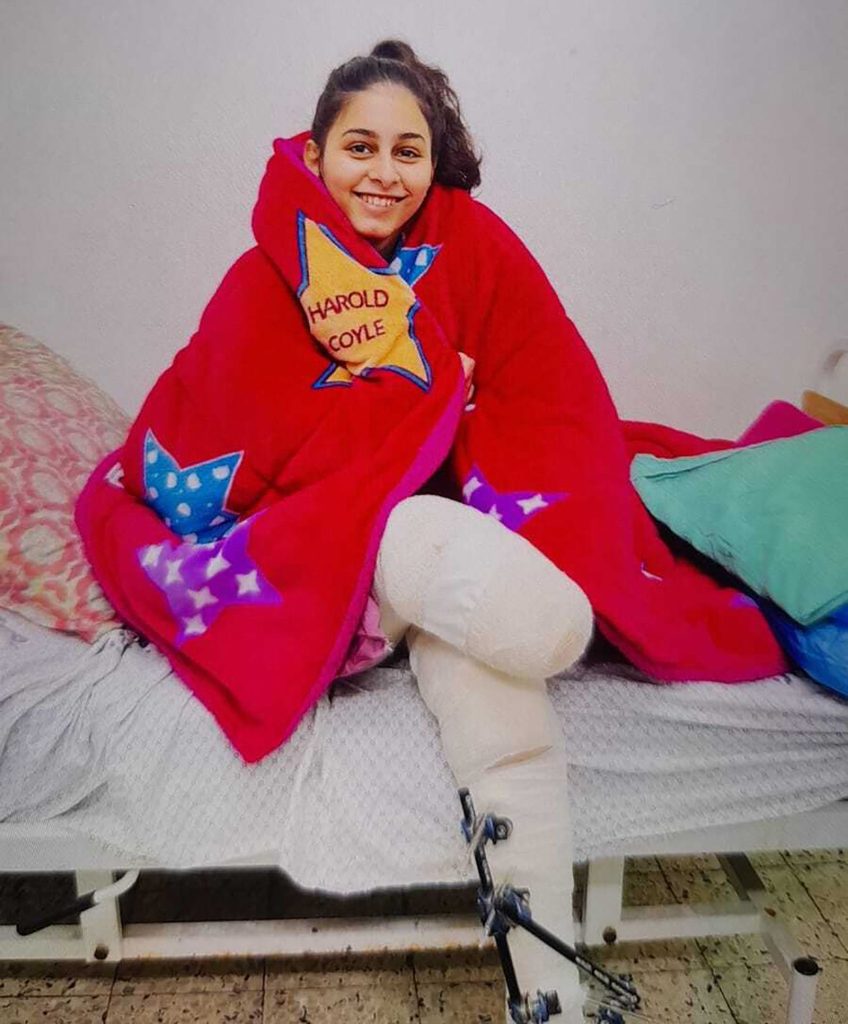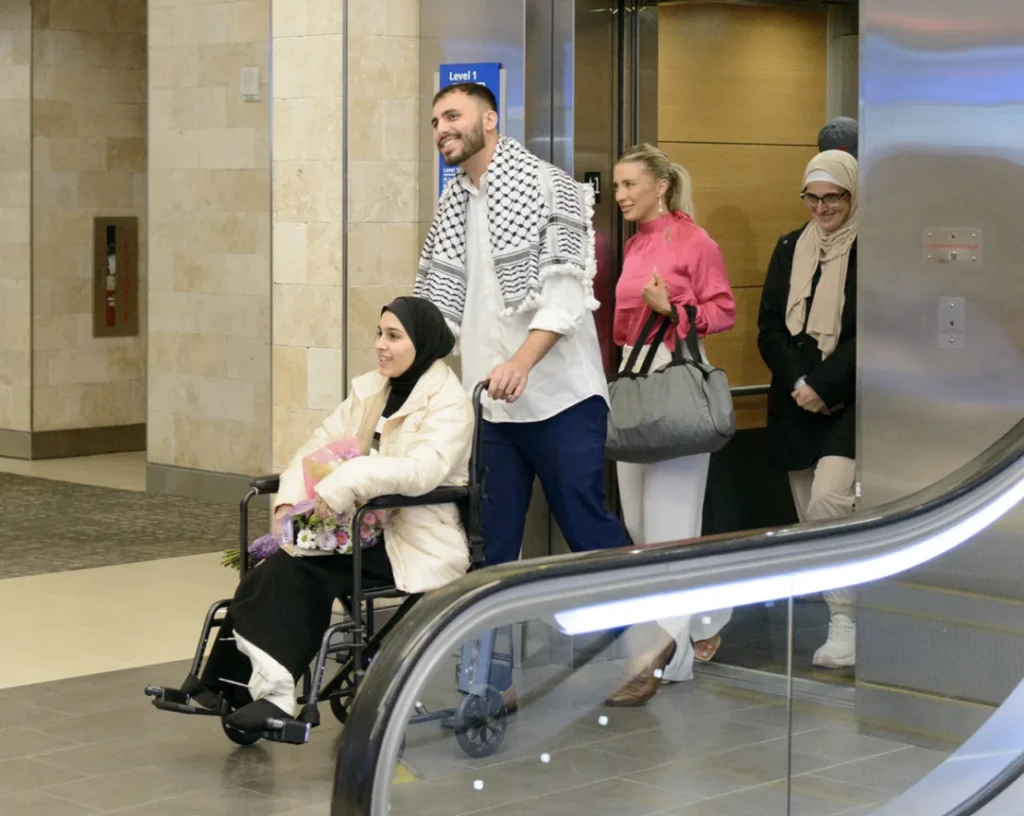On a harrowing day in northern Gaza, Ahed Bseiso lay motionless on her kitchen table as her uncle performed a makeshift amputation on her shattered leg. Amidst her mother’s tearful cries of despair, Bseiso clung to life, her future uncertain. Now, from a hospital room in Greenville, South Carolina, the 18-year-old shared her tale of survival to CNN.
Bseiso recounts the events of December 19, when an Israeli tank shell shattered her world. Ahed and her sister had climbed onto the roof of their home in Gaza, seeking a signal for her cellphone to reach their father living overseas.
During a siege, relentless bombardment, and dwindling supplies, they struggled to maintain contact with him, clinging to moments of connection amidst the chaos.
Telecommunication disruptions were a constant challenge in Gaza, forcing residents to seek out signals on rooftops, employ signal boosters, or resort to eSIM cards linked to regional telecom providers.

Ahed Bseiso vividly recalled to Al-Jazeerah, the moment she noticed an unusually large Israeli tank nearby, but before she could comprehend the danger, she found herself upside down, her right calf nearly severed, blood gushing from the wound.
In shock, Ahed remained silent, and her sister, Mona, hesitated to call out to her, fearing the worst. Eventually, Ahed managed to utter, “I’m alive,” grasping the gravity of her situation.
Her male cousins rushed to her aid, carrying her downstairs, while Ahed desperately sought reassurance about her missing limb. She was laid on the dining table, where her uncle, Hani, an orthopedist among their relatives, assessed the severity of her injury.
With no medical supplies at hand, Hani faced an agonizing decision: amputate Ahed’s lower leg to save her life, despite the absence of anesthesia or sterile equipment. Desperate improvisation ensued as Hani cleaned the wound with dish soap and a kitchen sponge, his heart heavy with the weight of his niece’s suffering. Ahed endured the excruciating pain, finding solace in reciting verses from the Quran.
In the days that followed, the family resorted to washing and reusing gauze, rationing antibiotics, and painkillers due to scarce resources. Days of excruciating pain followed, with Bseiso confined to her home, unable to access even basic pain relief. Her plight gained global attention when footage of her ordeal circulated online, catching the eye of the Palestine Children’s Relief Fund (PCRF). Through their tireless efforts, Ahed Bseiso was evacuated from the war-torn region to the United States for vital medical treatment.

Ahed Bseiso is one of a few fortunate Palestinians to receive such aid, but the scale of suffering in Gaza remains staggering. UNICEF reports that over 1,000 children have lost limbs, while tens of thousands more bear physical and emotional scars from the ongoing conflict.
Among them is two-year-old Jood Damo, whose innocence was shattered by a tank shell, leaving him orphaned and injured. In Chicago, doctors assess Jood’s prospects, hoping to salvage his fractured leg and offer him a chance at a normal childhood. Similarly, 13-year-old Ayham Musalm recounts the horror of injury and neglect, his life spared by the intervention of medical experts in the US.
Yet, behind each tale of resilience lies a stark reality—the struggle to access medical care amidst a brutal Israeli onslaught. PCRF’s Tareq Hailat navigates bureaucratic hurdles and logistical nightmares to bring hope to Gaza’s youth, but the challenges are immense. Delays in treatment can have dire consequences, amplifying the need for swift action in a region ravaged by conflict.
Dr. Amber Alayyan, of Médecins Sans Frontières, laments the loss of a once-functional healthcare system, now overwhelmed by the demands of war. In Gaza, where every moment counts, lives hang in the balance, and amputations become a grim necessity.
For Bseiso and countless others, the healing journey is fraught with uncertainty. In spite of the chaos, there is a glimmer of hope— the resilience of the human spirit, particularly Palestinians in the face of adversity.


